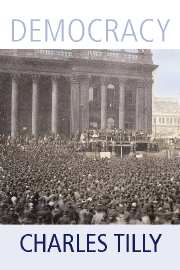5 - Equality and Inequality
Published online by Cambridge University Press: 05 June 2012
Summary
Political ethnographer Adam Ashforth has reached a startling conclusion concerning democratization in South Africa: witchcraft is threatening the country's hard-won democracy. From 1990 to the recent past, Ashforth has spent much of his time sharing the public and private lives of Soweto (South West Township), a huge black suburb of Johannesburg. His Soweto sojourn has therefore taken him through what most observers hail as South Africa's transition from authoritarianism to democracy.
Before he started working in Soweto, Ashforth wrote an impressive historical analysis of the legal process by which apartheid took shape (Ashforth 1990). But preparation for a book on witchcraft, violence, and democracy plunged him shoulder-deep into ethnography. Through firsthand observation, personal intervention, and incessant interrogation of his acquaintances, Ashforth built up a powerful picture of coping, strife, and hope amid vicious violence. Ashforth's ethnographic involvement forced him to abandon many a preconceived category and explanation of struggle during and after apartheid.
Ashforth argues persuasively that witchcraft is hobbling South African democratization. Sowetans and South Africans at large commonly believe that evil persons can call up occult forces to harm others they envy or dislike; that calling up such occult forces constitutes witchcraft; that some individuals inherit or learn the skills of witchcraft, thus becoming witches; and that only counter-use of occult forces can overcome witchcraft's damaging effects. Witchcraft can kill, cause personal suffering, and destroy careers. Fear of witchcraft, counteraction of witchcraft, and initiation of witchcraft pervade daily life.
- Type
- Chapter
- Information
- Democracy , pp. 106 - 132Publisher: Cambridge University PressPrint publication year: 2007



